If your dog is underweight or has lost a lot of weight then this could be a sign of an underlying condition and you should speak to your Veterinarian to get them examined.
A lot of dog owners come to us when their dog is in recovery or during treatment as our veterinary recommended pet food is ideal for helping dogs regain weight.
How to gain weight healthily
It is important for an underweight dog, especially one in recovery, to gain weight healthily. It can be tempting to treat your dog to tasty high calorie treats, even human food, but if these treats do not have a good balance of nutrition the added weight could put a strain on your recovering dog.
Tips to help your dog gain weight
Weigh your dog regularly
Weighing your dog will help you monitor their weight gain, without having to rely on just looking at their shape.
Exercise your dog
To put healthy weight on, especially in recovery, your dog needs to gain muscle mass, whilst it may seem that exercising your dog will burn more calories it will actually help them put on healthy weight and the exercise will contribute to increasing their appetite.
Feed them small meals regularly
So you don’t overwhelm your dog with a large meal, feed them smaller meals that are nutrient dense but more regularly, this will help their stomach adapt to the extra calories and prevent them from feeling sick which may put them off eating later. Miracle vet high calorie weight gain liquid is an easy and tasty way of administering food to your dog that won’t overwhelm them.
Give them high calorie treats
Treats are a great way of getting your dog to eat extra calories and you can get high calorie treats that are ideal for helping your dog gain healthy weight.
Feed them high quality nutrient dense dog food
Cheaper dog foods are often made up with a lot of unhealthy fats, and whilst initially you may feel this is a good thing to help your dog put on weight, you really need to be taking care of your dog's overall health. Healthy fats are good and part of a balanced diet but you also need good quality proteins, carbohydrates and vitamins to boost your recovering dogs immunity, prevent allergies and look after their gut health.
A good quality dog food will have all the nutrients your dog needs to support their recovery and boost their immunity whilst gaining weight healthily. If your dog has been used to a lower standard of dog food then it is better to mix together to help them adjust. Start with a smaller ration of good quality dog food (around 20 - 30% good quality) and then increase this to 100%. This will help your dog adjust and avoid tummy upsets from the change in diet.
Moving to a better quality dog food long term will help your dog maintain a healthy weight and avoid gut problems whilst giving them all the supplements to improve joint health and immunity.
Talk to your Veterinarian
When changing your dog's diet you should always have a plan with your veterinarian, they will be able to advise of any food allergies your dog may have, what weight gain is healthy for their age, breed and recovery and also be able to advise you on any conditions your dog may have that may need support from their diet.
For more advice on your dog's recovery or maintaining a healthy weight, sign up to our newsletter and get tips straight to your inbox.

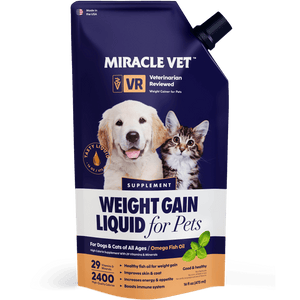
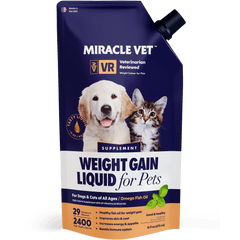
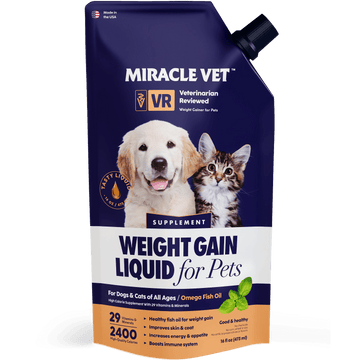
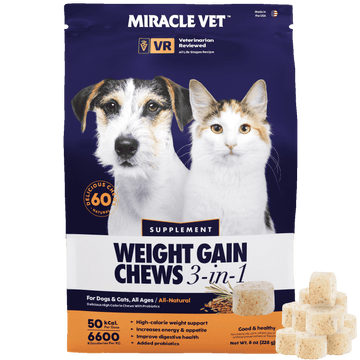
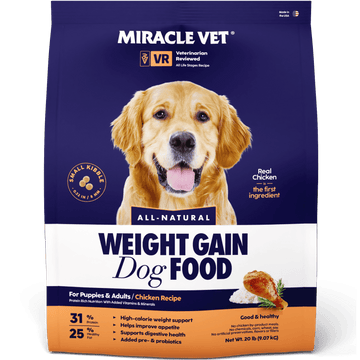
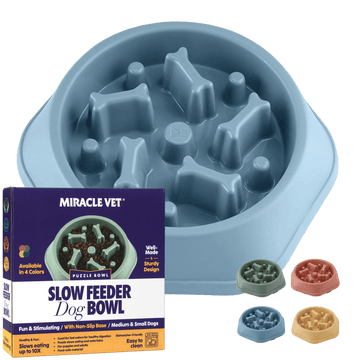




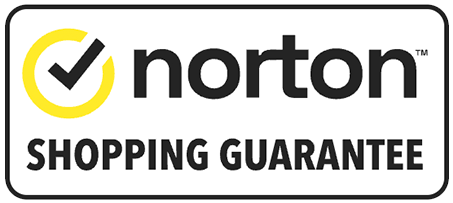
No comments yet!
Posted in
Be the first to comment